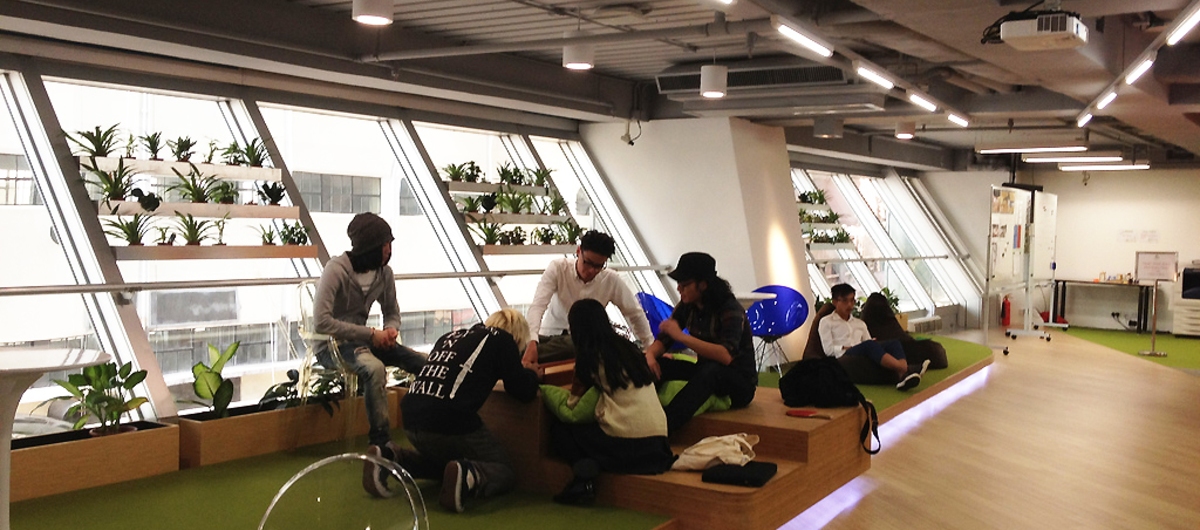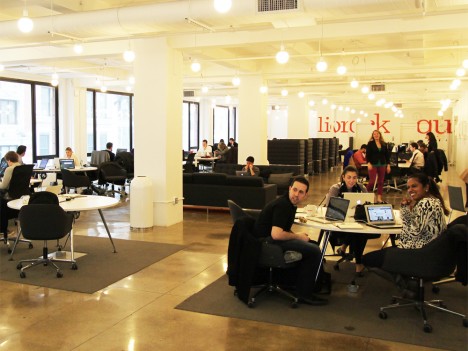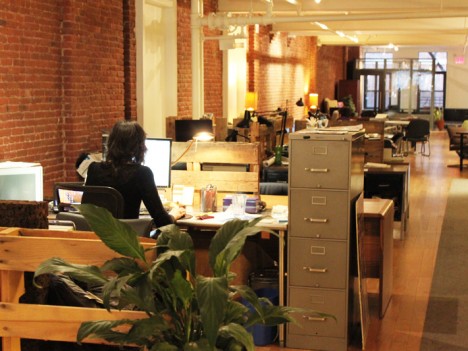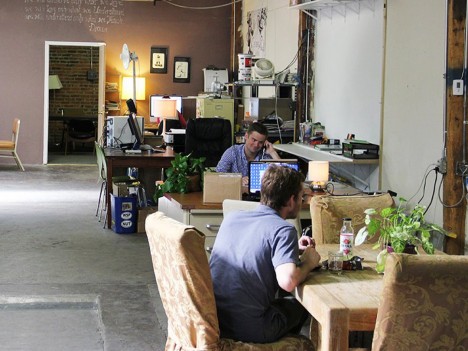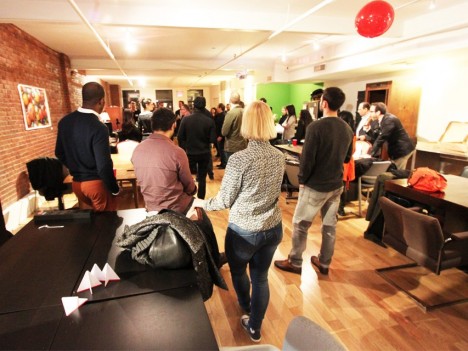Many coworking spaces already incorporate eco-friendly practices into their spaces in a variety of ways. The steps taken may be large or small, with every effort adding to the whole cause. Deskmag took a look at several examples to see what these spaces have been doing in order to be more green and to better understand the relationship between coworking and environmental sustainability.
The Relationship Between Sustainability and Economic Viability
Deskmag spoke with the “Head of Global Cooling,” Karina Warshaw, at Grind in Manhattan. “Some people think the title means I'm a really cool person, which I'm decidedly not. The title is a take on global warming - I'm in charge of trying to help cool the planet one Grind at a time.” Warshaw makes sure that Grind’s building runs as sustainably as possible. In order to accomplish this, Grind has installed low water usage faucets and toilettes, Tru-stile doors, CFL lighting, and FLOR tiles. Grind provides silverware, cups, and glasses for its members, so that no one has to use plastic utensils, which would just create more waste. In addition, all paper products are made from recycled materials, and all furniture at the space is cradle to cradle, with much of it being made from recycled materials or being recyclable itself.
When Grind was being built, no virgin materials were used for flooring, and instead the existing floor was refurbished. At night, all lights are turned off, and only sustainable cleaning products are used. Grind has also asked the city of New York to install a bicycle lockup outside of the building, as a way to encourage its members to ride their bikes to work.
Warshaw explained, “green coworking makes sense for coworkers both from a business perspective and from an environmental perspective. By working collaboratively in a space such as ours, members not only reduce their carbon footprints, they increase their bottom lines.” The combination of the two needs being met is of key importance, according to Warshaw. “If people are not benefiting economically from coworking, they’re not going to want to be there. This is the challenge of environmental friendliness across the board – it has to make economic sense along with environmental sense. I think collaborative work spaces accomplish this.”
Helping Bring Eco-Friendly to Hong Kong
CoCoon is Hong Kong’s largest coworking space. Sensitivity to issues of sustainability has been a part of CoCoon’s goals before the space even opened its doors. The plants in CoCoon’s café are all local and drought-resistant, so they require very little resources in order to be maintained. The flooring in the café is bamboo, low energy LEDs light the space, and the walls have been painted with non-toxic paints. And, of course, recycling is set up in the kitchenette. Future plans include making air conditioning at the space more energy efficient, and with summers that can last up to seven months, this adjustment would incur significant benefits.
Ng Wing, community developer at CoCoon, explained that, “most Hong Kong offices take pride in the 19°C conditions in high floors with private cubes. Having worked in traditional office spaces for a few decades, our co-founder, Mr. Max Ma, along with his fellow seasoned entrepreneurs re-imagined an ideal working space [that] they would have dreamt of 30 years ago: an open, airy space that facilitates conversations, brainstorming, and innovation. Our other co-founder, Mr. Theodore Ma, lives very sustainably on a daily basis, and, having lived in California for many years, living and working green is just a normal part of life. Like entrepreneurship, living a green lifestyle is about exploring new ways to do old things. Going green at CoCoon … aligns with our co-founders’ vision to create a brand new environment to facilitate the growth of entrepreneurship in Hong Kong.”



